-
 +12 +1
+12 +1First sickle cell patient treated with CRISPR gene-editing still thriving
For more than a year, Victoria Gray's life had been transformed. Gone were the sudden attacks of horrible pain that had tortured her all her life. Gone was the devastating fatigue that had left her helpless to care for herself or her kids. Gone were the nightmarish nights in the emergency room getting blood transfusions and powerful pain medication.
-
 +7 +1
+7 +1The tomatoes at the forefront of a food revolution
As global temperatures increase and extreme weather events become more common, can gene editing help to tweak our food plants so they can cope with the changes?
-
 +23 +1
+23 +1CRISPR gene therapy, ultrasound and drugs team up against liver cancer
Researchers in China have developed a new three-pronged method to fight liver cancer that shows promise in tests in mice. The technique combines drugs and CRISPR-Cas9 gene editing into lipid nanoparticles, then activates them with ultrasound.
-
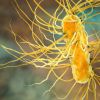 +18 +1
+18 +1CRISPR-based 'antibiotic' eliminates dangerous bacterium from the gut
Genetically engineered bacteria armed with CRISPR could help combat antibiotic-resistant infections and also allow doctors to edit people's microbiomes
-
 +19 +1
+19 +1This startup is going to resurrect the mammoth through CRISPR
You’ve heard of startups building computer chips, delivery drones and social networks. One called Colossal has a very different goal: bringing the woolly mammoth back from extinction by 2027 using CRISPR, a revolutionary gene editing technology. Colossal’s co-founders are Chief Executive Ben Lamm, who started five companies before this, and George Church, a Harvard Medical School professor with deep CRISPR expertise.
-
 +19 +1
+19 +1World's Leading Geneticists Aim to Resurrect Woolly Mammoth
It was a member of a small, isolated community of mammoths that was the last vestige of a once-thriving species that could be found roaming the plains of the northern hemisphere from Alaska to Siberia. Scientists still debate what caused the mammoths to finally go extinct, but the general consensus is that it was a combination of human hunting, genetic defects from inbreeding, and natural climate change, which shrank suitable mammoth habitat by a factor of ten.
-
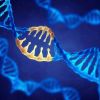 +16 +1
+16 +1CRISPR stops coronavirus replication in human cells
Scientists have harnessed CRISPR gene-editing technology to block the replication of the novel coronavirus in human cells — an approach that could one day serve as a new treatment for COVID-19.
-
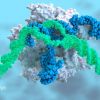 +20 +1
+20 +1Landmark CRISPR trial shows promise against deadly disease
Preliminary results from a landmark clinical trial suggest that CRISPR–Cas9 gene editing can be deployed directly into the body to treat disease. The study is the first to show that the technique can be safe and effective if the CRISPR–Cas9 components — in this case targeting a protein that is made mainly in the liver — are infused into the bloodstream.
-
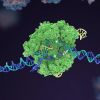 +14 +1
+14 +1Breakthrough CRISPR Gene Therapy Could Be a 'One and Done' Injection
In an early trial, patients received a single infusion of a CRISPR-based therapy to knock out the mutated gene responsible for their disease.
-
 +21 +1
+21 +1A New Gene Editing Tool Could Rival CRISPR, and Makes Millions of Edits at Once
With CRISPR’s meteoric rise as a gene editing marvel, it’s easy to forget its lowly origins: it was first discovered as a quirk of the bacterial immune system.
-
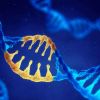 +20 +1
+20 +1A New CRISPR Tool Flips Genes On and Off Like a Light Switch
CRISPRoff can cause a gene to stay silent for hundreds of generations, even when its host cells morph from stem cells into more mature cells.
-
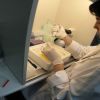 +15 +1
+15 +1The good, the bad and the truly horrifying potential of CRISPR technology
This remarkable technology has the potential to eliminate all genetic disorders and is already delivering results that scientists say were unimaginable just a few years ago.
-
 +26 +1
+26 +1A Massive New Gene Editing Project Is Out to Crush Alzheimer’s
When it comes to Alzheimer’s versus science, science is on the losing side. Alzheimer’s is cruel in the most insidious way. The disorder creeps up in some aging brains, gradually eating away at their ability to think and reason, whittling down its grasp on memories and reality. As the world’s population ages, Alzheimer’s is rearing its ugly head at a shocking rate. And despite decades of research, we have no treatment—not to mention a cure.
-
 +12 +1
+12 +1A Single Shot Restored Vision to a Blind Child for an Entire Year
A patient suffering from a genetic form of childhood blindness regained and retained vision for more than a year after receiving just a single shot of an experimental RNA therapy directly into the eye, according to a new study published in the journal Nature Medicine.
-
 +16 +1
+16 +1Personalized Skin Cancer Vaccine Shows Promise in New Trial Results
The future of cancer treatment might involve personalized vaccines meant to manage or even prevent relapses—at least if new research published Thursday continues to pan out. In a small clinical trial, high-risk melanoma patients given such a vaccine were able to create a long term, durable immune response to their cancer, scientists said. They also remained alive four years after the initial treatment, with most being actively disease-free.
-
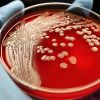 +3 +1
+3 +1Humans will be able to live forever
Some believe that soon humans will be able to live 1,000 years. We will continue to die, but instead of dying in the hospital while all our organs fail at the age of 90, we could spend a thousand years surrounded by the people we love, enjoying life. The basic idea behind biological aging is that aging occurs as you gradually accumulate damage to various cells and tissues in the body.
-
 +10 +1
+10 +11st Patients To Get CRISPR Gene-Editing Treatment Continue To Thrive
The last thing a lot of people want to do these days is get on a plane. But even a pandemic would not stop Victoria Gray. She jumped at the chance to head to the airport this summer. "It was one of those things I was waiting to get a chance to do," says Gray. She had never flown before because she was born with sickle cell disease. She feared the altitude change might trigger one of the worst complications of the devastating genetic disease — a sudden attack of excruciating pain.
-
 +16 +1
+16 +1CRISPR and another genetic strategy fix cell defects in two common blood disorders
It is a double milestone: new evidence that cures are possible for many people born with sickle cell disease and another serious blood disorder, beta-thalassemia, and a first for the genome editor CRISPR.
-
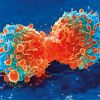 +17 +1
+17 +1Revolutionary CRISPR-based genome editing system treatment destroys cancer cells
Researchers at Tel Aviv University (TAU) have demonstrated that the CRISPR/Cas9 system is very effective in treating metastatic cancers, a significant step on the way to finding a cure for cancer. The researchers developed a novel lipid nanoparticle-based delivery system that specifically targets cancer cells and destroys them by genetic manipulation. The system, called CRISPR-LNPs, carries a genetic messenger (messenger RNA), which encodes for the CRISPR enzyme Cas9 that acts as molecular scissors that cut the cells' DNA.
-
 +19 +1
+19 +1Crispr-Cas9: Two Women 'Genetic Scissor Doctors' Awarded With Nobel Prize
The recognized pioneers of controversial gene-editing tool "Crispr-Cas9" are recently awarded by this year's Nobel Prize in Chemistry. Scientists Emmanuelle Charpentier and Jennifer Doudna are two women researchers that are recently added to the list of Nobel Prize winners of the world. This tool has been controversial due to its past issues of allegedly altering the genes of two unborn twins in China to stop them from acquiring AIDS.
Submit a link
Start a discussion




















